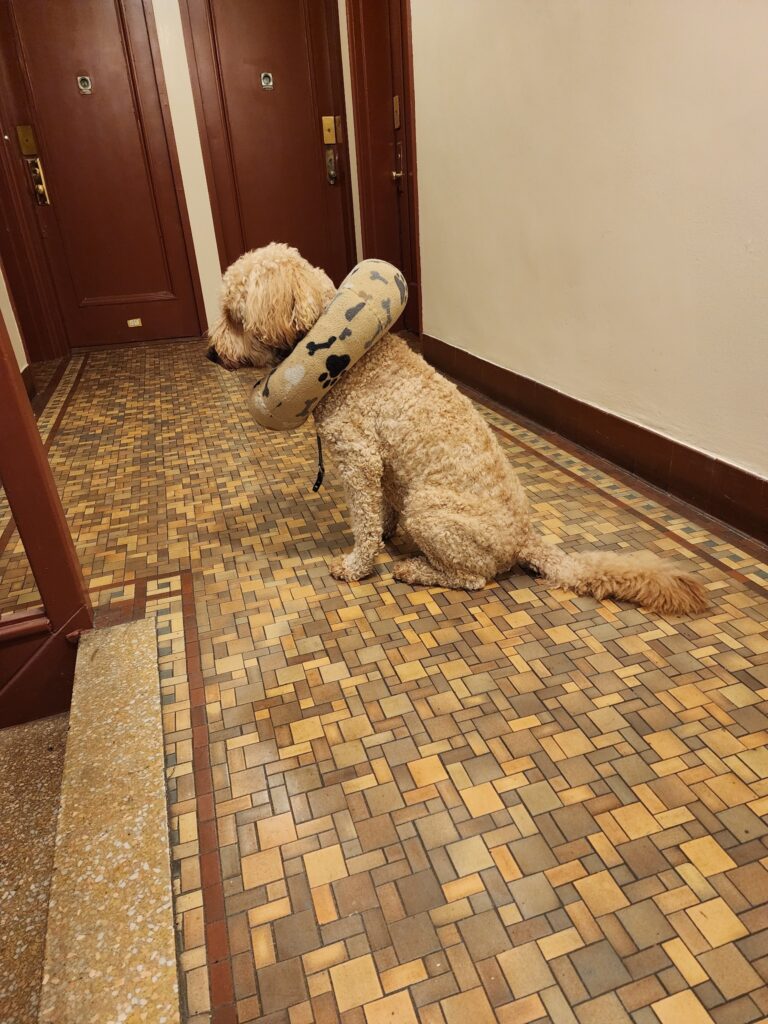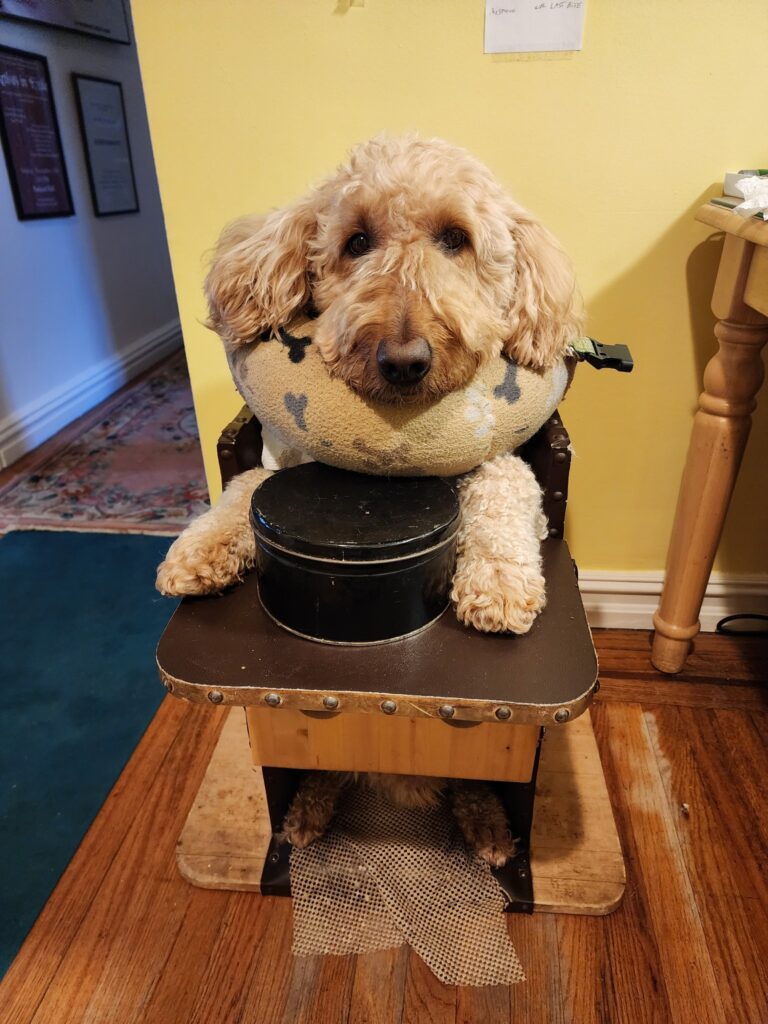Teddy died last Sunday after a short, swift illness, probably cancer. He was eleven years old.
My seminal Teddy memory: in the kitchen, during his early adulthood, I off-handedly said: “Mommy’s coming.” Teddy quivered with an anticipatory elation that consumed every particle of his being. This was my first experience of his bewildering linguistic acumen, and of an unadulterated emotional vocabulary that would never cease to surprise and amaze.
Much more recently – about a year ago – I informed my wife Agnes that the elevator was broken again and Teddy would have to take the stairs. This information was not imparted to Teddy. But, as was so often the case, Teddy was listening. When I leashed him and opened the front door to our apartment, he proceeded not to the elevator but to the stairs and began to whimper – he hated the stairs, his paws would slip and slide going up and down. The next day I told Teddy “The elevator is fixed” and he was a happy dog.
Teddy was good friends with Neil and Diane down the hall. Early in this relationship, I informed Agnes that Teddy knew we were about to pay them a visit; he had heard us talking about it. Agnes was skeptical. “Go and look,” I suggested. Agnes poked her head out the door and observed Teddy parked on his haunches in front of 6D. “Speak,” I said. He barked, the door opened, and Teddy entered wagging his tail.
The imagery of Teddy anticipating a visit was repeated many times. We acquired a self-serving habit of informing Teddy of impending “surprises.” The biggest announcements were that Bernie or Maggie – our son and daughter – were arriving. Teddy would position himself downstairs in the lobby, tautly immobilized. His suppressed energy would detonate once Bernie or Maggie appeared. We eventually conceded that we were exploiting his loyalty for our own pleasure. So we would strategize to keep Teddy in the dark – which proved impossible, because he eavesdropped even on phone conversations.
During the years that Agnes worked at Wadleigh High School on West 114 Street, Teddy and I would often meet her after work. Teddy would haul me to the bus stop at the corner of 96th and Central Park West and there inspect each arriving uptown bus. Or Teddy and I would walk 18 blocks to Wadleigh — he knew the way. It mattered not if Agnes was delayed. We sat on a stoop scrutinizing the schoolyard. Not once would Teddy look left or right.
Sometimes Agnes felt too tired or too busy to join us for Teddy’s early evening walk. Teddy would tenaciously object. Almost invariably, Agnes would change her mind.
When I took Teddy to Central Park, I chatted with him about one thing or another. However busy reconnoitering, Teddy would glance up to acknowledge my comments and instructions. In later years, he grew increasingly sociable. He took no interest in other dogs – or squirrels or horses, or the occasional raccoon, or the stray coyote we once saw at a distance. He could shrewdly assess which children and adults would likely succumb to his gaze. For many, it was irresistible. Can I pet your dog? What’s his name? May I say hello? Teddy would waylay passengers emerging from a car. He thought nothing of interrupting the cell phone conversations of strangers.
Of his friends on the block (typically with people whose names I never learned), the oldest and most intense was with Dino the night doorman four buildings down. Our midnight walks would begin with single instruction – “Let’s visit Dino” or (on Saturdays and Sundays) “no Dino.” Teddy accepted the finality of “no Dino” and would proceed across the street to pee. “Let’s visit Dino” meant waiting for Dino to appear and open a locked door. Sometimes Dino was not available and Teddy would cross the street with extreme reluctance. Dino’s wife once asked him: “Do you give him treats?” But Teddy’s friendships were never enticed – except by Teddy himself. When Teddy passed, Dino called him an “angel.” I owe my friendship to Dino to Teddy.
I haven’t mentioned that Teddy was born with a couple of serious medical disorders: myasthenia gravis and mega-esophagus. A miracle drug called mestinon kept him alive. But he could not swallow food or water normally. Like all myasthenia gravis dogs, he ate in a “Bailey chair” which kept his throat vertical.
So we hand-fed Teddy three times daily. The risk that Teddy would mis-swallow was ever present – we would have to pound his sides to help dislodge phlegm and errant food. We belonged to a diligent online community of MG dog owners. Bonding with a dog with special needs is itself a special experience.
Agnes and I never left Teddy alone. If we all travelled together, it was by car with Teddy and his chair; Teddy was far too large to pack on a plane. Last Monday, Agnes and I flew together for the first time in over a decade – to be with Maggie and Bernie in San Francisco. When we return to our New York apartment, we will return to Teddy’s chair, to Teddy’s beds, to Teddy’s medicines and toys and blankets and coats – to all things Teddy except Teddy himself.
His passing leaves an immense void.



